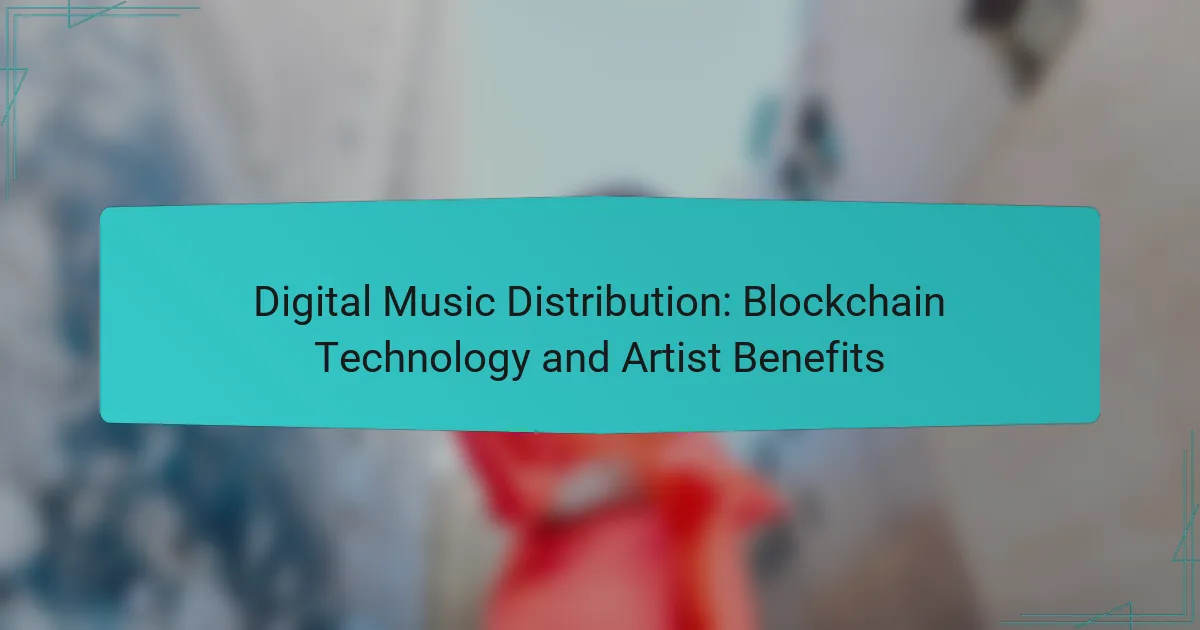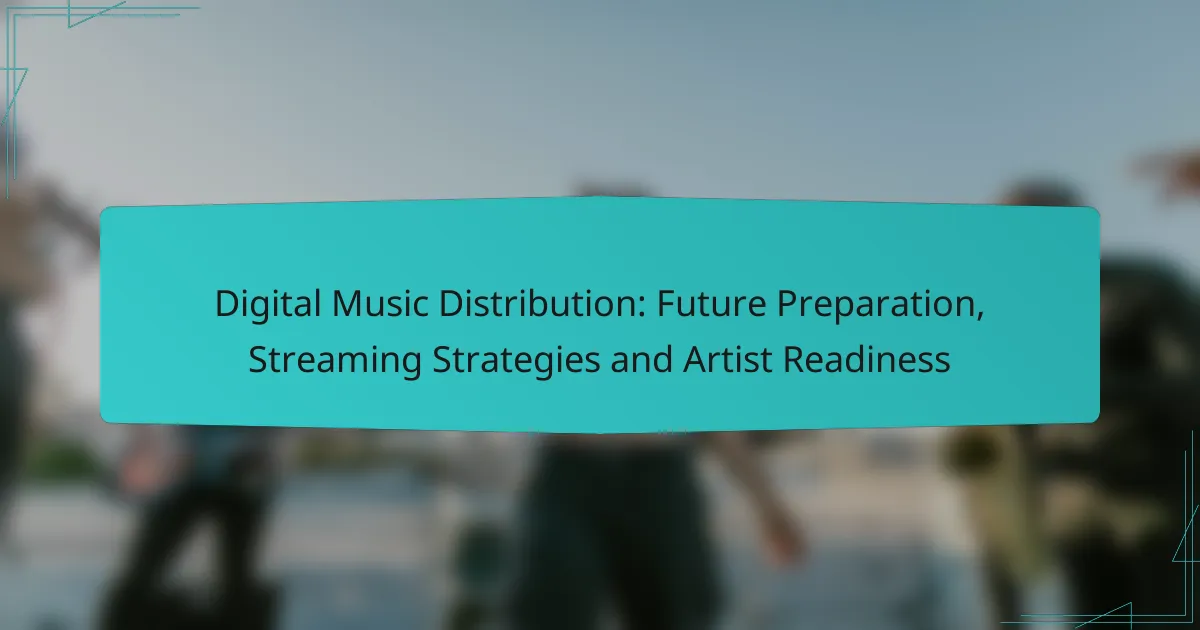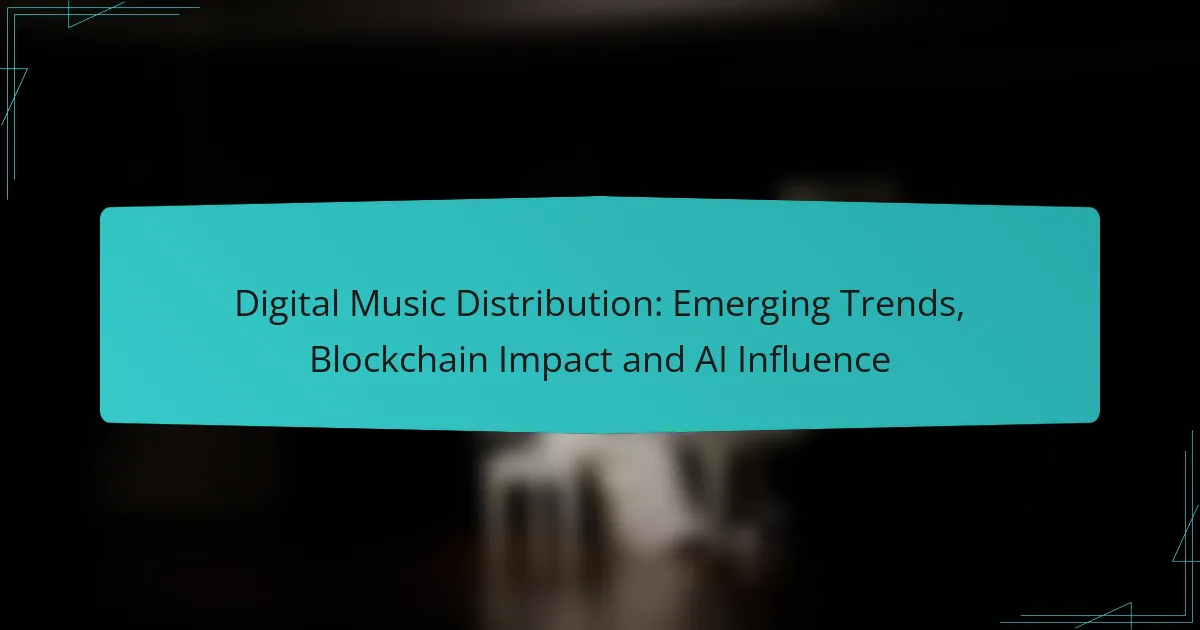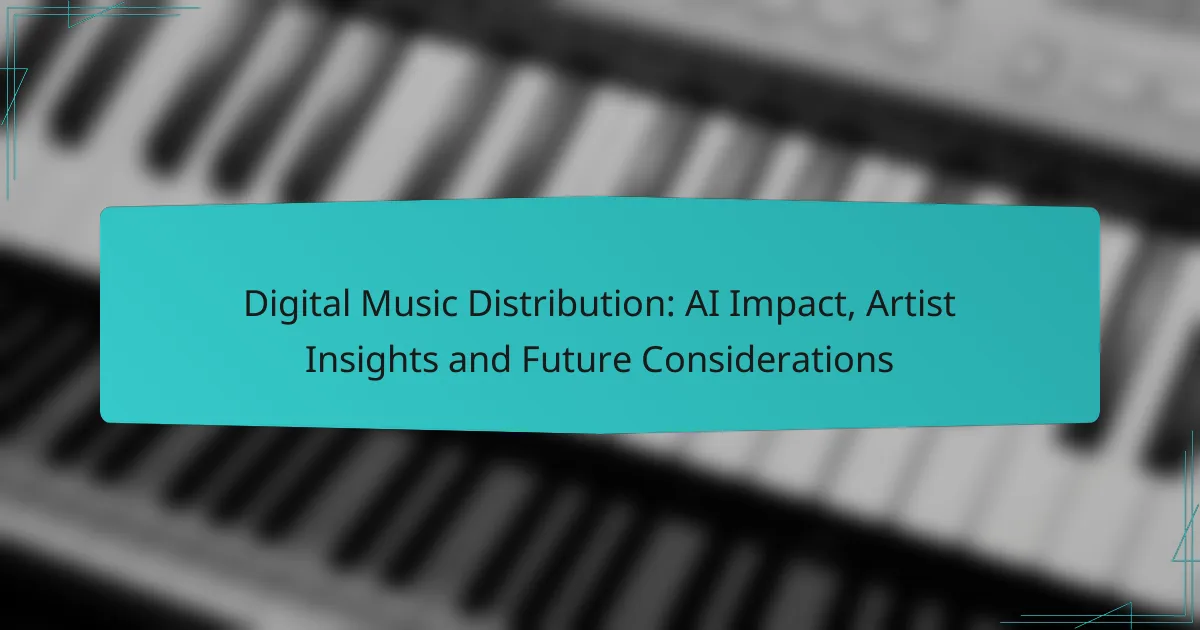Blockchain technology is revolutionizing digital music distribution by enabling artists to maintain ownership and control over their creations. This decentralized approach not only streamlines the distribution process but also ensures that artists receive fair compensation directly from their fans, enhancing revenue retention and engagement while minimizing piracy risks.
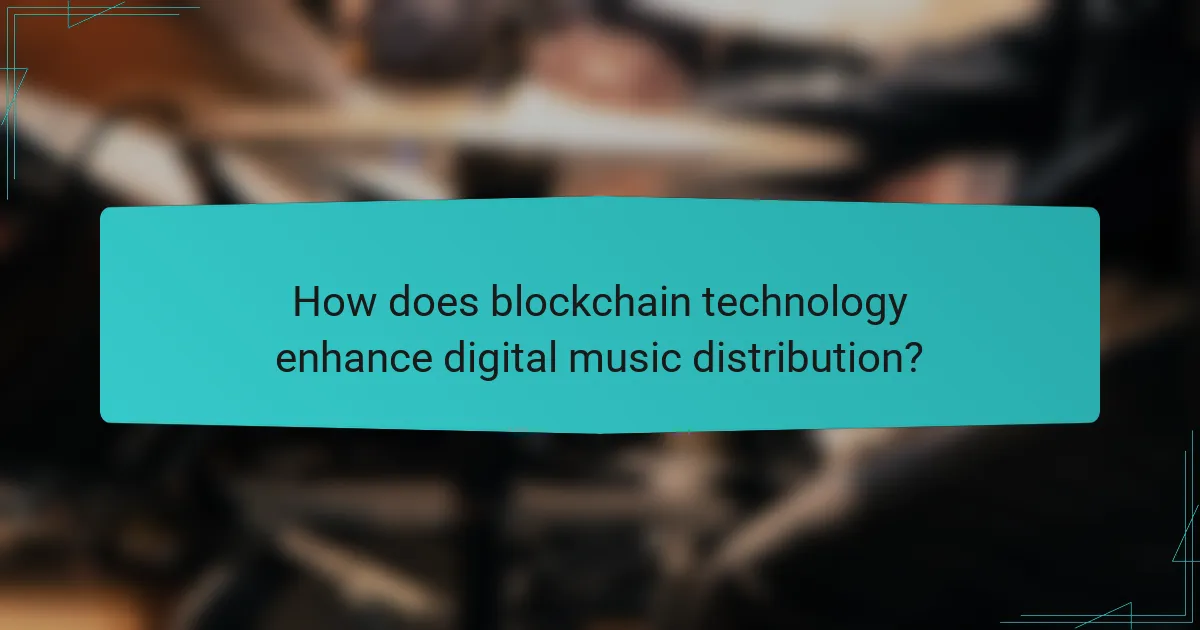
How does blockchain technology enhance digital music distribution?
Blockchain technology enhances digital music distribution by providing a decentralized platform that allows artists to retain ownership and control over their work. This innovation simplifies the distribution process, ensuring that artists receive fair compensation directly from their audience.
Decentralized ownership
Decentralized ownership means that artists can directly manage their music rights without relying on traditional intermediaries like record labels. By using blockchain, musicians can tokenize their work, allowing them to sell shares or licenses directly to fans and investors.
This model not only empowers artists but also fosters a closer connection with their audience, as fans can actively participate in the success of their favorite musicians. For example, an artist might issue tokens representing ownership in a new album, allowing fans to invest and share in the profits.
Smart contracts for royalties
Smart contracts automate royalty payments, ensuring that artists receive compensation immediately when their music is played or purchased. These self-executing contracts are coded on the blockchain, eliminating the need for manual processing and reducing the risk of disputes.
With smart contracts, artists can set specific terms for payments, such as percentages for collaborators or conditions for future royalties. This transparency and efficiency can lead to faster payments, often within minutes, compared to traditional systems that may take weeks or longer.
Transparency in transactions
Blockchain technology provides a transparent ledger of all transactions, allowing artists and fans to track how music is distributed and monetized. This visibility helps to build trust, as all parties can verify the flow of funds and the distribution of royalties.
For instance, an artist can see exactly how many streams their song has received and how much revenue has been generated in real-time. This level of transparency can deter fraud and ensure that artists are compensated fairly, as every transaction is recorded and immutable.
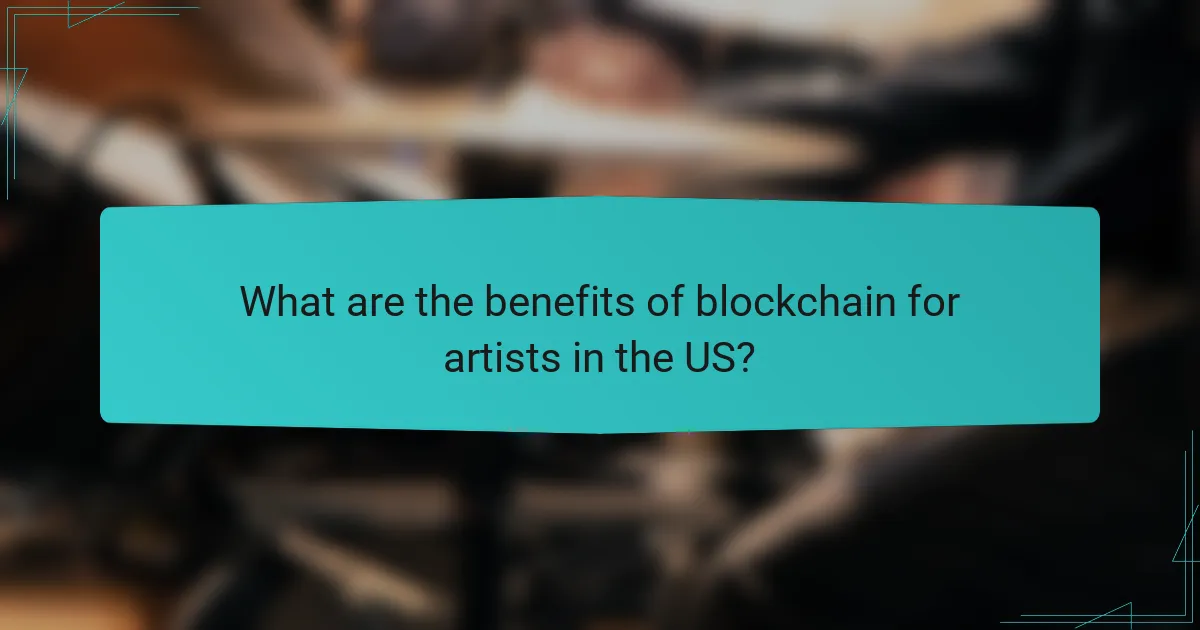
What are the benefits of blockchain for artists in the US?
Blockchain technology offers several advantages for artists in the US, including increased revenue retention, enhanced fan engagement, and reduced risks of piracy. By leveraging decentralized platforms, artists can gain more control over their music distribution and monetization.
Higher revenue retention
Blockchain allows artists to retain a larger share of their revenue by eliminating intermediaries like record labels and distributors. Traditional music distribution often results in artists receiving only a fraction of the revenue generated from their work, sometimes as low as 10-20%. With blockchain, artists can earn upwards of 80-90% of their earnings directly.
Smart contracts on blockchain platforms automatically execute payment terms, ensuring that artists receive their dues promptly and transparently. This reduces the chances of disputes over payments and allows for more predictable income streams.
Direct fan engagement
Blockchain enables artists to connect with their fans directly, fostering a more personal relationship. Through decentralized platforms, artists can share exclusive content, offer personalized experiences, and even sell merchandise directly to their audience without third-party interference.
By engaging fans through tokens or NFTs, artists can create unique experiences that enhance loyalty and encourage ongoing support. This direct interaction can lead to a more dedicated fanbase and increased revenue from merchandise and concert tickets.
Reduced piracy risks
Blockchain technology helps mitigate piracy by providing a secure and verifiable way to track ownership and usage rights of music. Each piece of music can be registered on the blockchain, creating a permanent record that proves ownership and distribution rights.
This transparency makes it more difficult for unauthorized parties to distribute or profit from an artist’s work without permission. Artists can enforce their rights more effectively, reducing the financial losses associated with piracy.
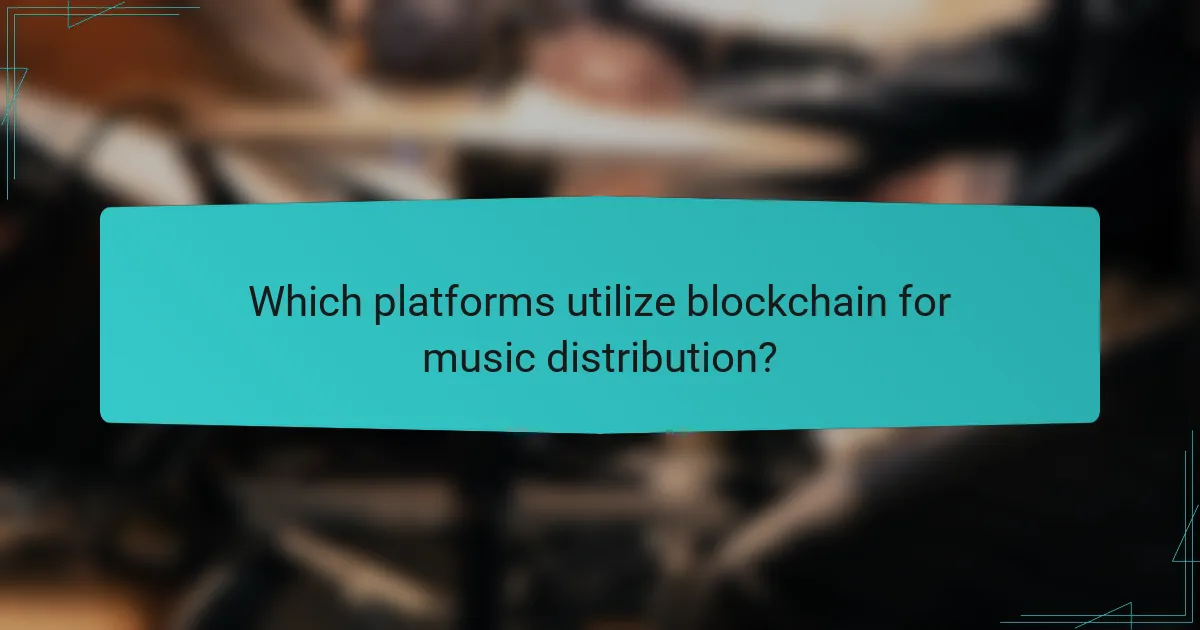
Which platforms utilize blockchain for music distribution?
Several platforms leverage blockchain technology to enhance music distribution, providing artists with better control over their work and revenue. These platforms utilize decentralized systems to ensure transparency, security, and fair compensation for creators.
Audius
Audius is a decentralized music streaming platform that allows artists to upload their music directly and connect with fans without intermediaries. By using blockchain technology, Audius ensures that artists receive a larger share of the revenue generated from their streams, typically around 90% compared to traditional platforms.
Artists can also engage with their audience through features like fan tokens, which can be used for exclusive content or experiences. This creates a more interactive environment for both creators and listeners.
Musicoin
Musicoin is another blockchain-based platform that enables artists to earn cryptocurrency directly from their music streams. The platform operates on a unique payment model where artists are paid in Musicoin tokens for every play, promoting a fairer compensation structure.
One key feature of Musicoin is its smart contracts, which automate payments and ensure that artists are compensated immediately upon streaming. This eliminates delays often seen in traditional music distribution models.
Vezt
Vezt offers a unique approach by allowing fans to invest in artists’ music rights through blockchain technology. Fans can purchase shares in a song or album, receiving a portion of the royalties generated from that music.
This model not only provides artists with upfront funding but also creates a community of supporters who have a vested interest in the success of the music. Vezt’s platform is designed to facilitate transparent transactions, ensuring that both artists and fans can track earnings easily.
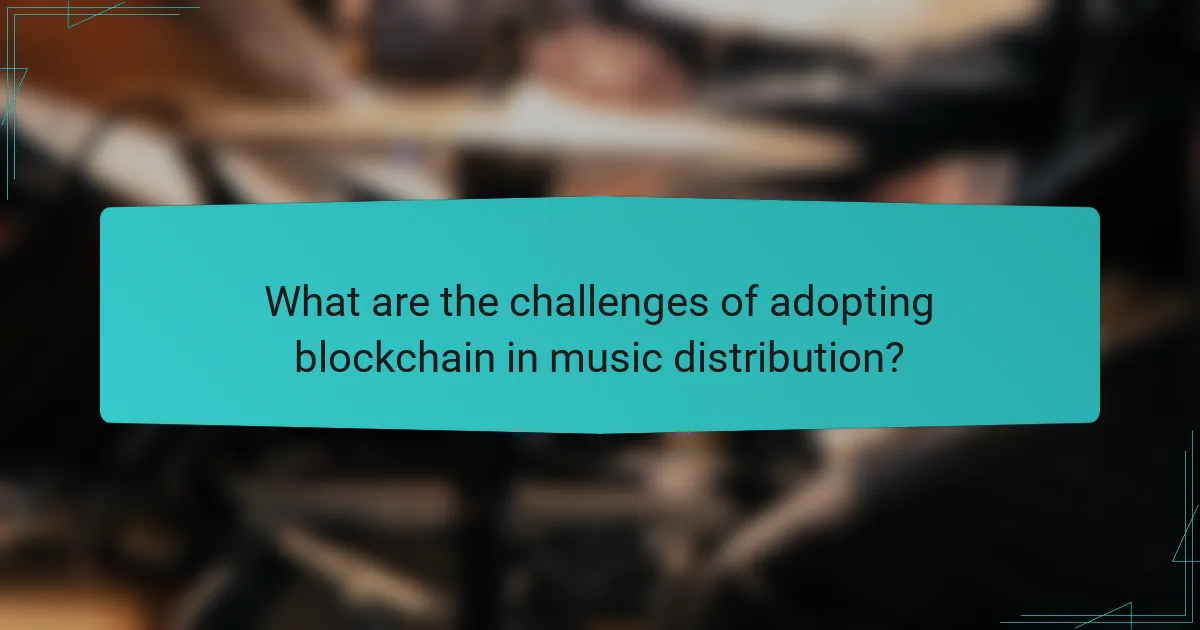
What are the challenges of adopting blockchain in music distribution?
Adopting blockchain technology in music distribution presents several challenges, including regulatory hurdles, technological complexity, and market adoption resistance. These obstacles can hinder the effective implementation and widespread acceptance of blockchain solutions in the music industry.
Regulatory hurdles
Regulatory hurdles pose significant challenges for blockchain adoption in music distribution. Different countries have varying laws regarding digital assets, copyright, and data privacy, making it difficult for artists and companies to navigate compliance. For instance, the European Union’s General Data Protection Regulation (GDPR) can complicate how blockchain handles personal data.
Additionally, the lack of clear regulations around blockchain technology can lead to uncertainty for stakeholders. This uncertainty may deter investment and innovation in blockchain-based music solutions, slowing down the overall adoption process.
Technological complexity
The technological complexity of blockchain can be a barrier for many artists and music distributors. Understanding how blockchain works, including concepts like smart contracts and decentralized networks, requires a certain level of technical knowledge that may not be accessible to everyone in the industry. This complexity can lead to confusion and reluctance to embrace new systems.
Moreover, integrating blockchain with existing music distribution platforms can be challenging. Companies must ensure that their systems are compatible with blockchain technology, which may involve significant investment in new infrastructure and training for staff.
Market adoption resistance
Market adoption resistance is another critical challenge facing blockchain in music distribution. Many artists and industry professionals are accustomed to traditional distribution methods and may be hesitant to switch to a new system. This resistance can stem from a lack of understanding of blockchain’s benefits or fear of the unknown.
To overcome this resistance, education and awareness are essential. Demonstrating successful case studies and providing clear examples of how blockchain can enhance transparency, reduce costs, and empower artists can help build trust and encourage adoption within the music community.
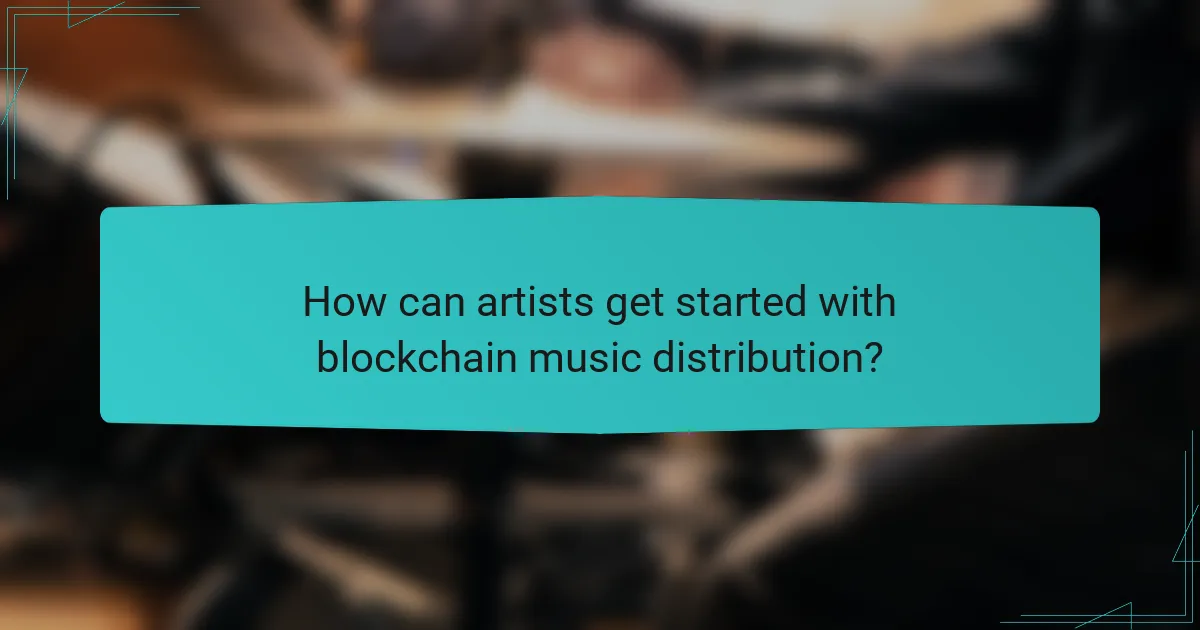
How can artists get started with blockchain music distribution?
Artists can start with blockchain music distribution by selecting a suitable platform, understanding smart contracts, and building a dedicated fanbase. These steps will help them leverage the benefits of blockchain technology to enhance their music distribution and revenue streams.
Choosing the right platform
Selecting the right blockchain music distribution platform is crucial for artists. Popular options include Audius, Ujo Music, and Opus, each offering unique features like royalty tracking and direct fan engagement. Artists should evaluate platforms based on user interface, fees, and community support.
Consider the platform’s reach and the types of services it offers. Some platforms may charge a percentage of earnings, while others might require upfront fees. Researching user reviews and success stories can provide insights into which platform aligns best with an artist’s goals.
Understanding smart contracts
Smart contracts are self-executing contracts with the terms directly written into code, enabling artists to automate royalty payments and distribution. By using smart contracts, artists can ensure they receive fair compensation without intermediaries taking a cut. This transparency can build trust with fans and collaborators.
Artists should familiarize themselves with how smart contracts work on their chosen platform. Many platforms provide templates or guides to help artists create their contracts. Understanding the basics of blockchain technology will also aid in navigating these tools effectively.
Building a fanbase
Building a fanbase is essential for artists using blockchain music distribution. Engaging with fans through social media, live performances, and exclusive content can foster loyalty and encourage support. Artists should consider offering unique experiences or rewards for fans who purchase their music or merchandise directly.
Utilizing blockchain’s transparency can enhance fan relationships. For example, artists can share insights into their earnings and how funds are used, creating a sense of community. Regular communication and interactive content can help maintain and grow the fanbase over time.
